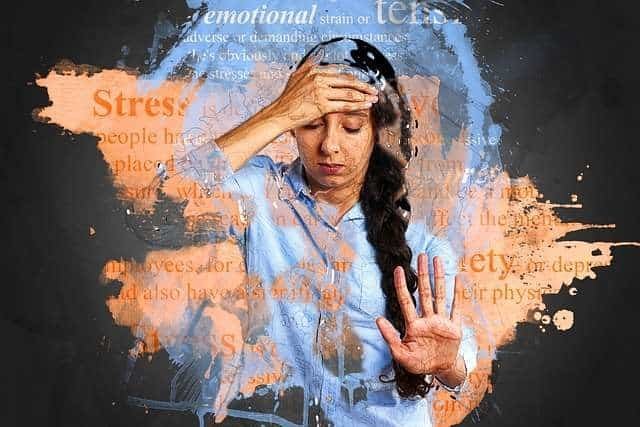Introduction
An uncommon viral illness known as monkeypox has recently made news. The illness, which is brought on by the monkeypox virus, resembles smallpox but is less dangerous and infectious. While outbreaks have also happened in the US and other places throughout the world, central and West African nations are where monkeypox is most often detected.
What monkeypox is?
This typical infectious disease mimics smallpox. Humans get it from sick animals or their body fluids by coming into contact with them. Although less contagious and fatal than smallpox, it can still be harmful and have a negative impact on health, especially for immunocompromised. Monkeypox has no known cure, although supportive care can help control symptoms and reduce consequences. It is crucial to take precautions against monkeypox, particularly if you reside in or plan to visit regions where the illness is known to exist. You may lessen your chance of contracting infection by practicing excellent hygiene and avoiding contact with diseased animals.
Importance of knowing how to prevent it
Monkeypox prevention is important for several reasons. Primarily, it is a deadly viral illness that can produce a variety of symptoms and leads to deadly complication in severe cases. To protect yourself and your family from this deadly virus, it is very important to understand how the virus transmit from one source to another and what kind of necessary precautions are to be taken to minimize the risk of exposure. By staying informed and implementing preventive measures, you can significantly reduce the chances of contracting the virus. Furthermore, despite the rarity of monkeypox, it is still a worry for those who live in or travel to those regions and lastly it is also essential for public health to prevent monkeypox. By adopting proactive measures to avoid monkeypox, we may contribute to lowering the overall burden of infectious illnesses on our communities. Outbreaks of the disease can place a strain on healthcare systems and resources.
How the Monkeypox virus spreads
Encountering infected animals or their body fluids can spread the monkeypox virus in addition, body fluids, contaminated surfaces, or materials, such as bedding or clothing that has come into contact with sick animals or people and respiratory droplets can all transfer monkeypox from one person to another. Human-to-human transmission is reported less frequent than animal-to-human transmission, but still there is high possible if a person meets an infected individual while providing care for a diseased person and accidentally encountering their bodily fluids and other contaminated belongings.
The monkeypox virus is not reported in all animals, though it was reported in a variety of species, notably monkeys, rats, and squirrels. As a result, it is crucial to exercise caution whenever handling or coming into touch with any animals that may be affected or their body fluids. It is essential to maintain proper sanitation practices and adequate hygiene if you wish to reduce your risk of catching the virus.
Importance of understanding transmission
For a number of reasons, it is important to understand how the monkeypox virus spreads. Knowing the virus’s primary route of spread will help you take preventative measures to lower your risk of infection.
You may significantly lower your chance of contracting monkeypox by avoiding contact with infected animals or people, practising excellent hygiene, and adhering to proper sanitation practises.
Understanding transmission is also crucial for locating and controlling monkeypox outbreaks. Health officials can find, and quarantine affected people, track their contacts, and put protective measures in place by checking the virus’s spread.
Additionally, it is important to understand transmission to promote public health awareness and education. Health officials may help people in taking preventative measures to safeguard themselves and their communities from the disease by informing the public about how monkeypox is spread.
Tips for Preventing spared of monkeypox
Reduce Exposure to Infected Animals
To stop the disease from spreading, people must avoid animals that might be carrying the monkeypox virus. Many animals that are infected with the monkeypox virus could not show any symptoms of sickness. Due of this, it might be challenging to spot and stay away from sick animals without taking preventative steps. Because of this, it is of utmost important to follow the proper sanitation protocols and wear personal protective equipment (PPE) like gloves, masks, and other safety measures while handling or coming into contact with any potentially contagious animals.
To stop the transmission of monkeypox to other animals and human, it’s essential to avoid contact even if they are not displaying any symptoms of illness. This can result in disease outbreaks and a higher risk of human infection. Overall, controlling the disease’s transmission and ensuring the public’s health require avoiding contact with animals that may be carrying the monkeypox virus.
Specific tips for avoiding contact with infected animals.
Here are some specific tips for avoiding contact with animals that may carry the monkeypox virus:
- Avoid touching wild animals, especially if they are injured or dead. This covers rats, primates, and other known virus-carrying species.
- Wear protective clothes, such as gloves, masks, and long sleeve shirts, whenever you must handle animals that may be infected. This can lessen your chance of contracting the infection.
- After coming into contact with animals, animal products, or animal waste, thoroughly wash your hands with soap and water. If you are managing animals that could be affected with the virus, this is very crucial.
- Before consuming wild animal meat, perfectly cook it, because cooking at elevated temperature kills viruses or germs that could be present in the meat.
- Avoid coming into contact with animals that are exotic pets or that have been brought in illegally. These animals could be more prone to have the virus since they were not thoroughly evaluated for illnesses.
- For advice on what to do next if you encounter an animal that may be carrying the virus, contact local health department or animal control agency.
Practice Good Hygiene
To prevent the spread of monkeypox, it is necessary to practice excellent cleanliness. This is because the viruses commonly spread either through direct contact with infected people or by touching contaminated surfaces or things. Therefore, you may lower your chance of buying the virus and stop the illness from spreading by keeping proper hygiene.
Hand washing is among the most important hygiene practises for avoiding infection. Regular hand washing with soap and water might aid in eradicating any germs or viruses that could be on your skin. It is crucial to wash your hands before eating and during food preparation as well as after handling animals, animal products, or animal waste.
It is critical to maintain appropriate personal hygiene in addition to washing your hands. This involves taking frequent showers, keeping spotless clothing, and bedding, and avoiding close contact with anyone who could be ill. When coughing or sneezing when ill, it is crucial to cover your mouth and nose to stop the illness from infecting others.
Keeping up strong sanitary standards is essential for halting the spread of monkeypox virus in medical facilities. Healthcare professionals should adhere to standard infection control procedures, which include donning PPE, cleaning surfaces and equipment, and isolating patients who could be contaminated with the virus.
In general, maintaining useful cleanliness is essential to halting the spread of monkeypox. We may lower our risk of viral exposure and contribute to the prevention of disease outbreaks by keeping effective infection control procedures and basic personal cleanliness.
Tips for good hygiene which can lower the chance of monkeypox
Here are some specific hygiene practices to follow to reduce the risk of infection:
- Frequent hand washing: Wash your hands for at least 20 seconds with soap and water. This should be done before touching or handling food, before eating and after using the toilet, handling animals or animal products, and after coughing, sneezing, or blowing your nose.
- Use hand sanitizer: If soap solution is not available, use an alcohol-based hand sanitizer that holds at least 60% alcohol.
- Shower regularly: Regularly shower to keep your skin clean. Wash your body with warm water and a gentle soap.
- Avoid sharing personal items: Never let anybody else use your towels, blankets, or clothing, especially if they are ill.
- Cover your mouth and nose: When you cough or sneeze, cover your mouth and nose with a tissue or your elbow, and throw away used tissues right away.
- Keep your home clean: Clean and disinfect commonly touched surfaces and items, such doorknobs, light switches, and counters, by using disinfectant cleansers.
- Avoid contact with sick: Keep your distance from someone who is ill or showing signs of monkeypox, including fever, rash, and enlarged lymph nodes.
- Wear personal protective equipment: Wear the proper personal protective equipment, such as gloves, masks, and goggles, if you work in a healthcare facility or are with animals that may be infected with the virus.
By following these specific hygiene precautions, you can reduce risk of exposure to the monkeypox virus and prevent the spread of the disease.
Get Vaccinated
Explanation of how the monkeypox vaccine works
The monkeypox vaccine works by triggering an immunological response from the body against the virus. The live but weakened virus in the vaccine induce an immune response against monkeypox without causing any disease in healthy people.
The body creates antibodies against the virus after receiving the vaccine because it perceives it as being alien. If the individual is exposed to the virus in the future, these antibodies will still be present in the body and will promptly find and destroy the virus.
The monkeypox vaccine is administered as a single dose and is normally saved for those who have an elevated risk of getting the disease, including medical professionals or lab technicians who manage monkeypox virus samples. It can also be administered to those who are visiting regions where monkeypox is common or who live in places where the illness is endemic.
The monkeypox vaccination can have modest adverse effects, including fever, muscular pains, and redness or swelling where the injection was given. Serious adverse effects are uncommon. Because monkeypox is an uncommon illness and most people have a minimal chance of exposure, the monkeypox vaccination is not often recommended for the public. Find out if the vaccination is suggested for you, go to your healthcare professional if you think you could be at risk of exposure.
Importance of getting vaccinated for those who are at considerable risk
The monkeypox vaccination offers strong immunity to the virus and can drastically lower the chance of developing the illness. In fact, research has found that the vaccination prevents monkeypox 85–90% of the time.
Individuals who are at substantial risk for monkeypox can help stop the disease from spreading by being vaccinated. This is crucial in hospital settings because, without the right infection control procedures in place, the disease can quickly spread from one person to another.
Know the Signs and Symptoms of monkeypox
To detect and diagnose monkeypox early, which may help in preventing the disease’s spread, one must be aware of the early symptoms. Some common symptoms to keep an eye include the following:
- Fever: Within the first few days of illness, a fever is often experienced by those who have monkeypox. Chills, headaches, and muscular pains might be present in addition to the temperature.
- Rash: Typically, a rash appears 1–3 days after the start of a fever. Small, raised bumps initially, but over time the rash develops into fluid-filled blisters, which finally dry and fall off. The face, hands, and feet may be the areas of the body where the rash is most noticeable.
- Swollen lymph nodes: One typical sign of monkeypox is swollen lymph nodes, which can appear in the neck, armpit, or groin.
- Fatigue: The fatigue and weakness that come with monkeypox are common and can be severe.
- Other symptoms: Back ache, chest pain, and breathing problems are some other signs and symptoms of monkeypox.
It is important to remember that these signs are not exclusive to monkeypox and can also be brought on by a variety of other illnesses. For a precise diagnosis if you are suffering any of these symptoms, it is crucial to consult a healthcare professional.
If you believe you may have been exposed to monkeypox, it is essential to inform your healthcare provider so that the proper steps can be done to stop the disease from spreading.
Conclusion
In summary, preventing monkeypox is extremely important for several reasons:
- Monkeypox can result in severe illness: The symptoms of monkeypox can range from moderate to severe, making it a potentially dangerous condition. It may even be lethal in some circumstances.
- Monkeypox is easily contagious: People or animals that have the disease can transfer it by coming into close contact. Additionally, it is contagious when in touch with contaminated things or by respiratory droplets. This implies that it can spread rapidly throughout healthcare facilities, homes, and communities.
- Prevention is essential for halting outbreaks: When epidemics of monkeypox happen, they can be challenging to have and spread swiftly to new locations. We may aid avoid outbreaks and safeguard public health by taking efforts to prevent the sickness.
Overall, monkeypox prevention is crucial for supporting both individual and societal health. We can all do our part to curb the disease’s spread by focusing on prevention, raising awareness of the condition, and getting medical care when needed.
Encouragement to adhere to the advice provided in the article
I implore everyone to use the advice provided in this essay to avoid getting monkeypox. You may shield yourself from this potentially dangerous disease by adopting certain precautions, and by protecting others close to you.
Remember that the first line of defence against monkeypox is avoiding contact with sick people or animals, supporting excellent hygiene, and being vaccinated if you are at substantial risk. You can dramatically lower your risk of getting the virus and aid in the fight against illness transmission by developing these behaviours as habits.
Additionally, it is critical to comprehend monkeypox, particularly if you reside in a region where the illness is known to spread. The right steps to protect yourself and, if necessary, seek medical care will be made possible by being aware of how the virus spreads and for what to look out. In other words, it is everyone’s obligation to stop monkeypox. We can help keep ourselves and our communities safe and healthy by cooperating and implementing the advice provided in this post.













